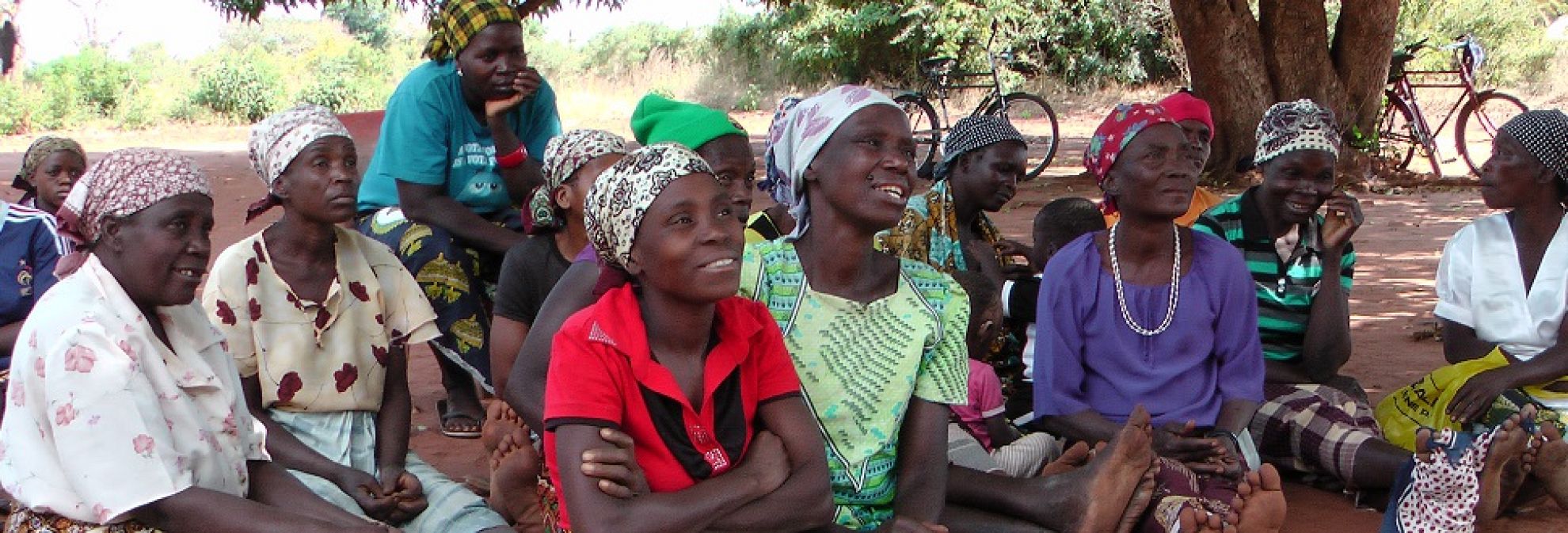
Provincial coordinators in Mozambique learn about social mobilisation for neglected tropical diseases
11 March 2016Neglected tropical diseases (NTDs) are a group of 17 infectious diseases that can be devastating to those they affect – mainly people in poor and remote communities with limited access to healthcare. Many NTDs can be managed through mass drug administration (MDA) – the distribution of curative drugs on a mass scale. However, to maximise protection from NTDs, people in affected areas also need to adopt protective behaviours, such as improved hygiene and sanitation or avoiding contact with parasites. A prerequisite for both strategies is that communities have an understanding of the diseases and what solutions are available for their prevention and control.
In Mozambique, the most prevalent NTDs include schistosomiasis, trachoma, intestinal parasites, lymphatic filariasis and onchocerciasis. MDA has been implemented for a range of NTDs over recent years, but efforts to engage with affected communities have so far been limited.
In early March this year, Malaria Consortium was invited by the NTD Department at the Republic of Mozambique’s Ministry of Health to facilitate a learning session on social mobilisation strategies for the NTD coordinators from each of the 10 provinces of Mozambique, as part of an annual national programme review meeting, where representatives from relevant government departments and partner NGOs working on NTD prevention and control also participated.
During the session, participants worked on improving strategy and planning for social mobilisation surrounding MDA campaigns to ensure high uptake, and discussed the community dialogues approach to increase community participation in NTD prevention and control.
This last approach has recently been tested by Malaria Consortium as part of a study exploring the use of community dialogues for prevention and control of schistosomiasis in Nampula province. The study – which received funding from the Bill & Melinda Gates Foundation and COMDIS-HSD, a research consortium funded by the UK Government – involved the training of 150 non-specialist community dialogue facilitators from all communities in four districts of Nampula Province. Equipped with a set of visual tools and a manual guiding them through a simple, repeatable 10-step process, the facilitators conducted regular dialogues in their communities between August 2014 and November 2015. One of the community dialogues facilitators attended the annual NTD meeting and gave a first-hand account of the approach, which prompts communities to explore how a health issue affects the community, identify locally relevant solutions and plan for communal action. For example, many communities where dialogues were conducted have started projects to increase the number of latrines in order to improve sanitation and protect themselves better from schistosomiasis.
While the NTD community dialogues study results are currently being analysed and will be released in June this year, the findings from a representative household survey conducted prior to the community dialogues intervention in the study area have recently been published in PLOS Neglected Tropical Diseases. The article (Have You Heard of Schistosomiasis? Knowledge, Attitudes and Practices in Nampula Province, Mozambique) concludes that while awareness of schistosomiasis was high, correct knowledge of how the disease is acquired and how it can be prevented were very low. For example, many people thought schistosomiasis was transmitted through sexual contact. Overcoming these misconceptions will be a crucial step toward reducing cases of schistosomiasis in the region.
Recognising the potential of the community dialogues approach to improve community engagement with regard to NTD prevention and control in Mozambique, the NTD Department at the Ministry of Health requested Malaria Consortium to deliver a comprehensive training on the community dialogues approach for all provincial NTD coordinators for later this year. In addition, Malaria Consortium has also secured funding from the Liverpool School of Tropical Medicine’s Filarial Programmes Support Unit to continue implementation of community dialogues in two districts of Nampula province.
This new phase will focus on another NTD, lymphatic filariasis and will facilitate community-led initiatives for better home-based care of people suffering from lymphatic filariasis. It aims to improve knowledge and attitudes with regard to this disease at the community level, identify patients and refer them to health services, encourage local solutions for the community-based management of patients with lymphoedema and investigate community perceptionsand the possible stigma associated with this disease.
Keywords: Public health communications | Community delivery | Advocacy and policy
Related content
20 May 2014
Community dialogues for prevention and control of neglected tropical diseases
24 September 2014Tackling neglected tropical diseases within the community
19 January 2016COMDIS-HSD annual review highlights 2015 achievements
Latest news
- Malaria Consortium honoured by Ugandan government for contribution to combat malaria23rd April 2024
- International summit calls for AMR accountability in public health interventions21st March 2024
- Global SMC community celebrates new milestone at SMC Alliance Annual Meeting in Nigeria6th March 2024
- Scaling up key interventions could halve pneumonia-related childhood mortality13th February 2024
- Malaria Consortium and eGov Foundation join Mozambique’s national malaria programme to digitalise seasonal malaria chemoprevention campaigns8th February 2024
- World’s first malaria vaccine rollout launched in Cameroon22nd January 2024